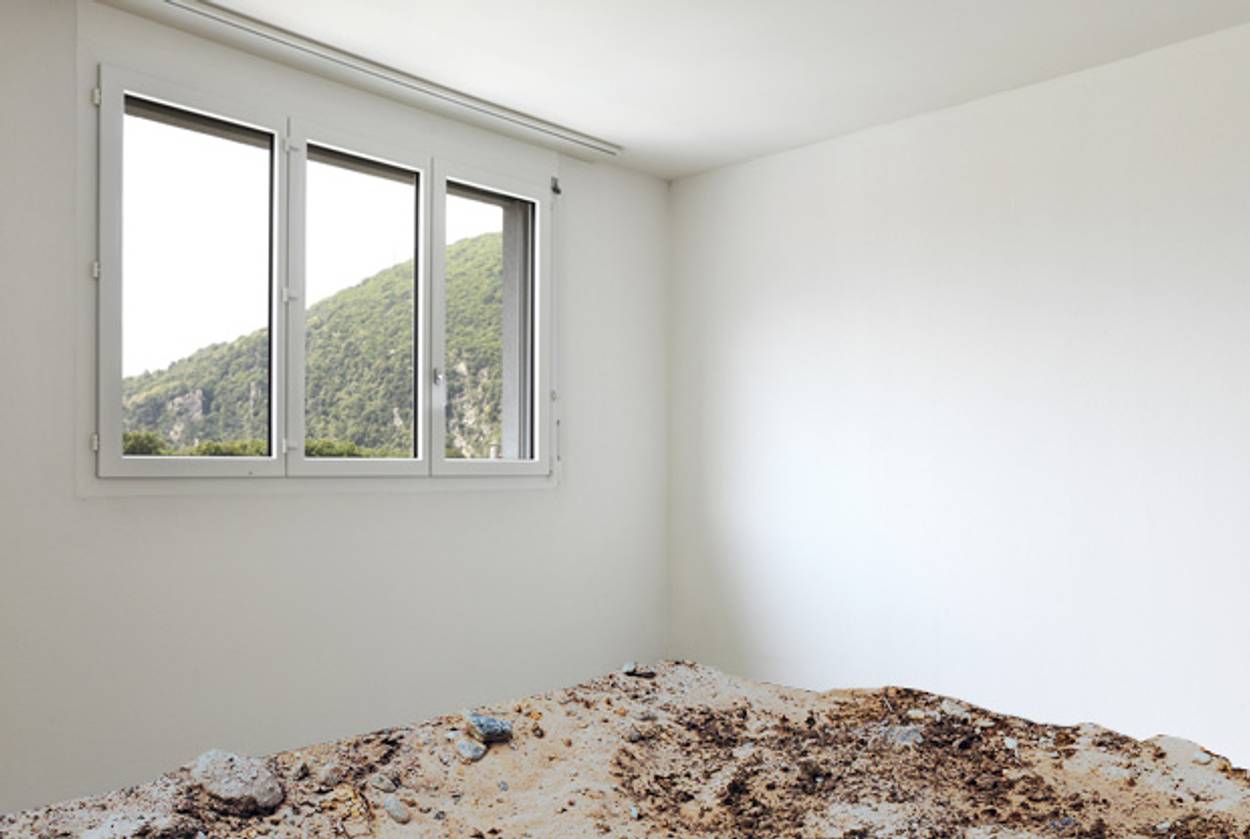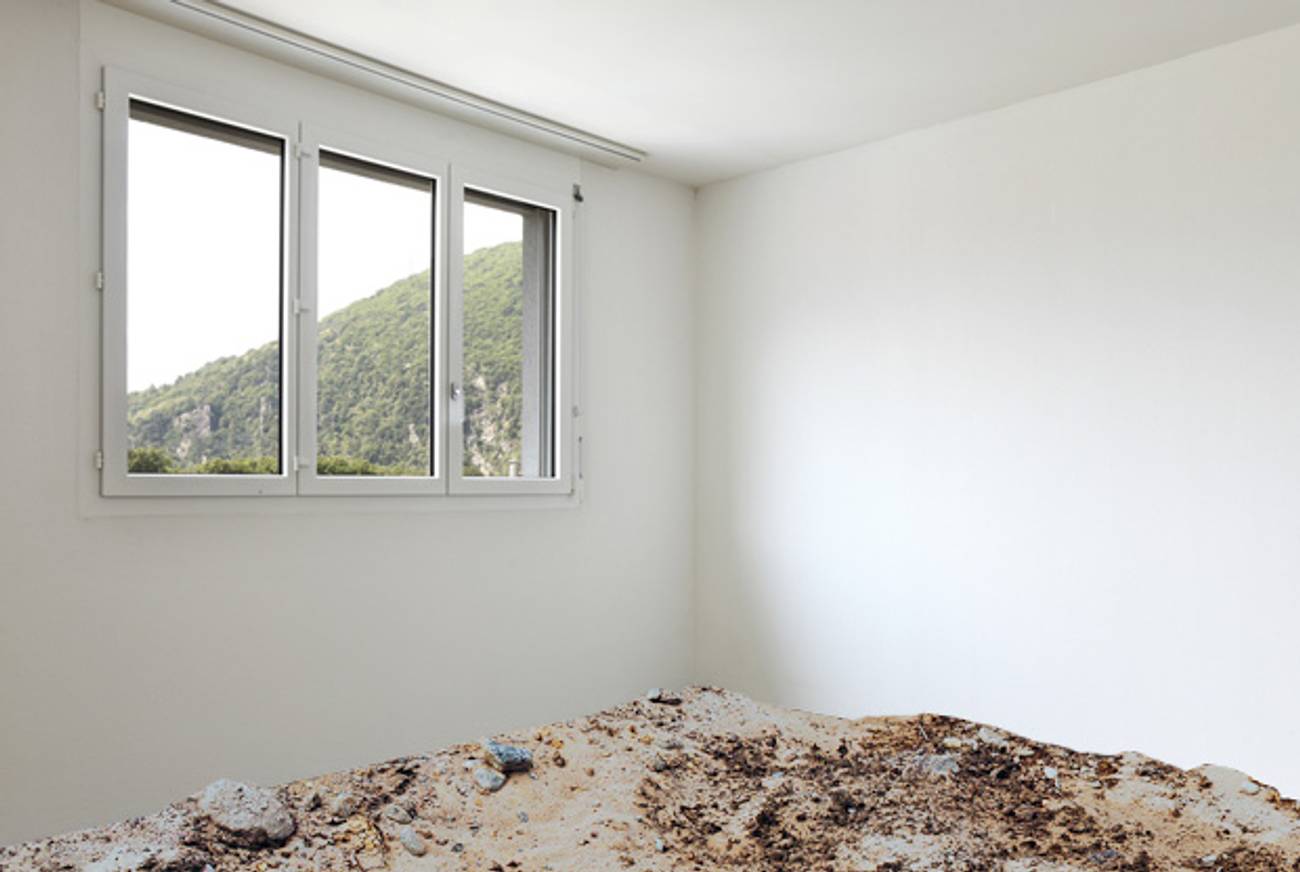Ground Up
Diagnosed with cancer, my father decided to have his tongue removed. It’s an extreme treatment, but he’s always known how to make things work out.




I have a good dad. I’m lucky, I know. Not everyone has a good dad. Last week, I went to the hospital with him for a fairly routine test, and the doctors told us that he was going to die. He has an advanced stage of cancer at the base of his tongue. The kind you don’t recover from. Cancer had visited my father four years earlier. The doctors were optimistic then and he really did beat it.
The doctors said there were several options this time. We could do nothing and my father would die in a few weeks. He could undergo chemotherapy, and if it worked it would give him another few months. They could give him radiation treatment, but the chances were that that would hurt more than it would help. Or they could operate and remove his tongue and his larynx. It was a complicated surgery that would take more than 10 hours, and, considering my father’s advanced age, the doctors didn’t think it was a viable option. But my dad liked the idea. “At my age, I don’t need a tongue anymore, just eyes in my head and a heart that beats,” he told the young oncologist. “The worst that can happen is that instead of telling you how pretty you are, I’ll write it down.”
The doctor blushed. “It’s not just the speech, it’s the trauma of the operation,” she said. “It’s the suffering and the rehabilitation if you survive it. We’re talking here about an enormous blow to your quality of life.”
“I love life,” my dad gave her his obstinate smile. “If the quality is good, then great. If not, then not. I’m not picky.”
In the taxi on our way back from the hospital my dad held my hand as if I were 5 years old again and we were about to cross a busy street. He was talking excitedly about the various treatment options, like an entrepreneur discussing new business opportunities. My dad is a businessman. Not a tycoon in a three-piece suit, just a regular guy who likes to buy and sell, and, if he can’t buy or sell, he’s ready to lease or rent. For him business is a way to meet people, to communicate, to get a little action going. Just let him buy a pack of cigarettes at some kiosk, and within 10 minutes he’s talking to the guy behind the counter about a possible partnership. “We’re really in an ideal situation here,” he said, totally seriously, as he stroked my hand. “I love making decisions when things are at rock bottom. And the situation is such dreck now that I can only come out ahead: With the chemo, I’ll die in no time at all; with the radiation, I’ll get gangrene of the jaw; and everyone’s sure I won’t survive the operation because I’m 84. You know how many plots of land I bought like that? When the owner doesn’t want to sell, and I don’t have a penny in my pocket?”
“I know,” I said. And I really do.
When I was 7, we moved. Our old apartment had been on the same street, and we’d all loved it, but my dad insisted that we move to a larger place. During World War II, my dad, his parents, and some other people hid in a hole in the ground in a Polish town for almost 600 days. The hole was so small that they couldn’t stand or lie down in it, only sit. When the Russians liberated the area, they had to carry my father and my grandparents out, because they couldn’t move on their own. Their muscles had atrophied. That time he spent in the hole had made him sensitive about privacy. The fact that my brother, sister, and I were growing up in the same room drove him crazy. He wanted us to move to an apartment where we would all have our own rooms. We kids actually liked sharing a bedroom, but when my dad makes up his mind, there’s no changing it.
One Saturday a few weeks before we were supposed to leave our old apartment, which he’d already sold, my dad took us to see our new place. We all showered and put on our nicest clothes, even though we knew we weren’t going to see anyone there. But still, it isn’t every day that you move to a new apartment.
Though the building was finished, no one lived in it yet. After dad made sure we were all in the elevator, he pressed the button for the fifth floor. That building was one of the only ones in the neighborhood that had an elevator, and the short ride itself thrilled us. Dad opened the reinforced steel door to the new apartment and began to show us the rooms. First the kids’ rooms, then the master bedroom, and finally the living room and the huge balcony. The view was amazing and all of us, especially my dad, were enchanted by the magical palace that would be our new home.
“Have you ever seen such a view?” he hugged my mom and pointed to the green hill visible from the living room window.
“No,” my mom replied unenthusiastically.
“Then why the sour look?” my dad asked.
“Because there’s no floor,” my mom whispered and looked down at the dirt and exposed metal pipes under our feet. Only then did I look down and see, along with my brother and sister, what my mother saw. I mean, we’d all seen earlier that there was no floor, but somehow, with all my dad’s excitement and enthusiasm, we hadn’t paid much attention to that fact. My dad looked down now too.
“Sorry,” he said. “There was no money left.”
“After we move, I’ll have to wash the floor,” my mom said in her most ordinary voice. “I know how to wash tiles, not sand.”
“You’re right,” my dad said and tried to hug her.
“The fact that I’m right won’t help me clean the house,” she said.
“OK, OK,” my dad said. “If you stop talking about it and give me a minute’s quiet, I’ll think of something. You know that, right?” My mother nodded unconvincingly. The elevator ride down was less happy.
When we moved into the new apartment a few weeks later, the floors were completely covered in ceramic tiles, a different color in each room. In the socialist Israel of the early 1970s, there was only one kind of tile—the color of sesame—and the colored floors in our apartment—reds, blacks, and browns—was different from anything we’d ever seen.
“You see?” my dad kissed my mother on the forehead proudly. “I told you I’d think of something.”
Only a month later did we discover exactly what he’d thought of. I was alone at home taking a shower that day when a gray-haired man wearing a white button-down shirt came into the bathroom with a young couple. “These are our Volcano Red tiles. Direct from Italy,” he said, pointing to the floor. The woman was the first to notice me, naked and soaped up, staring at them. The three of them quickly apologized and left the bathroom.
That evening at dinner, when I told everyone what had happened, my dad revealed his secret. Since he hadn’t had the money to pay for floor tiles, he’d made a deal with the ceramics company: They would give us the tiles for free, and my dad would let them use our place as a model apartment.
The taxi had already reached my parents’ building, and when we got out, my dad was still holding my hand. “This is exactly how I like to make decisions, when there’s nothing to lose and everything to gain,” he repeated. When we opened the apartment door, we were greeted by a pleasant, familiar smell, hundreds of colored floor tiles, and a single powerful hope. Who knows? Maybe this time, too, life and my father will surprise us with another unexpected deal.
Translated by Sondra Silverston
Etgar Keret is a Tel Aviv-based filmmaker and fiction writer. He writes a regular column from Israel for Tablet.
Etgar Keret is a Tel Aviv-based filmmaker and fiction writer.